Cable tries original flavour
In an increasingly congested market, even more US cable channels are turning to original drama series to define their programming and their audience. Michael Pickard reports.
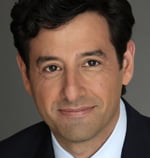
Rob Sharenow
Ask US programming executives about the state of cable drama and one phrase crops up repeatedly. With shows like Game of Thrones,
The Walking Dead and Homeland, it’s no surprise to hear this time being described as a “golden age.”
Cable networks have been commissioning original drama for many years, and every season several more turn their hand to original programming. So as the marketplace becomes increasingly congested, who are the latest players, how are funding models evolving and how are broadcast networks reacting to the challenge?
One cablenet that recently moved into scripted development was E!. The NBCUniversal (NBCU)-owned channel unveiled nine scripted series in development, ranging from Dorothy, a Warner Horizon Television series inspired by The Wizard of Oz, to The 400, a 19th century drama from Fox Television Studios.
Another NBCU network, Bravo, has also signalled its intention to air original drama from 2013. Among its first projects is 22 Birthdays (working title) from Universal Cable Productions, about a group of parents at an exclusive private school and their scandalous behaviour.
After building audiences through factual fare such as Pawn Stars and Ice Road Truckers, History is also moving into scripted. Its first original miniseries, Hatfields & McCoys, which stars Kevin Costner and comes out of Sony Pictures Television (SPT), broke ratings records for a non-sports telecast on ad-supported cable when its debut episode drew 13.9 million viewers on May 28. The channel has also commissioned its first scripted series, Vikings, produced by Take 5 Productions and World 2000 Entertainment (The Tudors, Camelot). The show is set to air in summer 2013.
Hallmark Channel, furthermore, is using telemovies as back-door pilots to adapt as original full-length series. The Crown Media-owned network has ordered Cedar Cove, about the lives and relationships of the eponymous town’s residents; and When Calls the Heart, a period drama about a wealthy young woman who builds a new life in a frontier town.
Like Hallmark, Lifetime is a relative veteran in original series but it is also hoping to mine its TV movie slate as pilots. This strategy has already found success with The Client List, a series inspired by the film of the same name, produced by SPT and starring Jennifer Love Hewitt as a mother who turns to prostitution. It is planning a similar strategy for Sworn to Silence, a TV movie starring Neve Campbell about a series of murders in an Amish community. Other new projects include TV movie Steel Magnolias, Renee Zellweger’s 1960s-set drama Cinnamon Girl, and an MGM-produced series about FBI agent Clarice Starling, the character from 1991 film The Silence of the Lambs.
“It’s a very crowded environment right now,” says Rob Sharenow, executive VP of programming at Lifetime Networks. “A lot of people are jumping into the scripted game and you’re constantly vying for the same stories. What sets us apart is we don’t always go down that route. We didn’t with The Client List and it was a huge success for us. And we’re looking at several projects that fit that mould from our movie department.”
Sundance Channel has been an active coproducer over the past two years, teaming up with Canal+ in France for Carlos, with ITV in the UK for Appropriate Adult, and with partners including BBC Worldwide (BBCWW) on forthcoming miniseries Top of the Lake, directed by Jane Campion and set in New Zealand
The channel has since commissioned its first wholly owned series, Rectify, produced by Gran Via Productions (Breaking Bad), about a man who is released from prison after 19 years on death row.
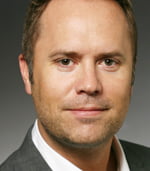
Craig Cegielski
Sarah Barnett, general manager at Sundance, believes the US is “leading the world of scripted drama right now.” She adds: “There’s something about the Sundance brand that lends itself to powerful narrative storytelling. That allows for a certain complexity of character, of layers, of depth. There’s a deep, primitive, psychological desire on the part of audiences to hear great stories well told.”
For an example of the power drama has to define a network and its viewers, look no further than Mad Men’s 2007 launch on AMC. And it is that effect that many executives see as the driving force behind the expansion of other channels into original scripted programming.
John Morayniss, CEO of Entertainment One Television (eOne), says the bigger cable networks “want to throw dollars at drama production because they feel that can build them a loyal audience. All it takes is one big show to change your brand. USA Network started years ago with The Shield. The shows define the network, not the other way around.”
Craig Cegielski, president of Camelot prodco GK-TV, agrees that signature series have proven to be “appointment television” for their networks. In April, GK-TV found a home on premium cable network Cinemax for Hurt People, a pilot that will mark CSI alum William Petersen’s return to TV. The producer has also partnered with Gale Ann Hurd’s Valhalla Entertainment (The Walking Dead), cable network FX and Fox International Channels on Port Royal, a period drama about pirates.
“It’s a phenomenal time to be a producer but you have to be much more aware of the brand you’re pitching to because they’ve become much more specific,” says Cegielski. “They each have their own brand of storytelling, which impacts the projects they get behind.”
Among the ongoing series produced by Fox TV Studios are The Glades at Lifetime, The Killing at AMC; and Burn Notice and White Collar for USA. The studio’s development slate includes crime series Graceland, also for USA, and spy thriller The Americans for FX, where it is also working on a remake of UK medical comedy Sirens.

Magic City
“There’s a lot of opportunity for scripted programming in cable,” says David Madden, president of Fox TV Studios. “But it’s becoming harder to make a success on a ratings level. There’s so much material in drama; it’s a bloodbath out there. There are only so many audience members and only so many hours to watch, which is why viewership keeps migrating to DVRs. But networks say if they’re not watching live, they’re probably not watching the commercials, and that upsets ad sales. It’s a complicated time.”
SPT’s production slate includes another Lifetime series, Drop Dead Diva; AMC’s Breaking Bad; and Justified on FX. It also has a pilot, Masters of Sex, with Showtime.
Keith Le Goy, SPT’s president of international distribution, says: “There are many more places to go and have your story told. The challenge is finding the right one. And not just who is going to commission the project but ultimately who is going to be the best home for the project over five, seven, 10 years.”
As more cable networks move into original series, the traditional financial model used for broadcast network drama – a licence fee coupled with deficit funding from the studio – is still the most common financing deal in play. But many executives are now looking at alternative ways to raise money.
eOne is developing a traditional studio system, but has also used what Morayniss calls a “reverse engineering” coproduction model for shows such as Syfy’s Haven and NBC’s The Firm, a coproduction with SPT. “We use it to develop a show that has a significant market in the US but because of the auspices, subject matter or script, we’re starting with international buyers and then going back to the US,” he explains. “We’re not looking for a full licence fee in the US because we have a show already financed; but we are looking for a straight-to-series order. Saving Hope is the latest example, which was shot by [Canadian broadcaster] CTV and picked up to series by NBC.”
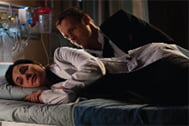
Saving Hope
Sundance’s history as a coproducer means it is open to a variety of financing structures. “We like to get involved in coproductions where we can have some meaningful creative input, and Top of the Lake is a good example of that,” says Barnett. “Everyone is benefiting from shifts in technology, consumer behaviour and emerging platforms and the revenues that go with subscription VoD. There’s a very healthy international market for rights owners right now.”
The lack of off-network programming in Lifetime’s primetime schedule means the channel is “really making an investment in ourselves and trying to be all-original. It’s both out of desire and out of necessity,” says Sharenow. “We don’t have a set-in-stone rulebook that every deal has to conform to. We try to get creative to get the best stuff because at the heart of the business is great creative and we’re going to do whatever we can to make sure we get that.”
Premium cable channel Starz has defined its original programming through shows like Spartacus and Magic City, with forthcoming projects including Da Vinci’s Demons, with BBCWW; Marco Polo, a coproduction with Electus and The Weinstein Company; and Black Sails, a pirate drama from exec producer Michael Bay.

Wedding Band
John Penney, executive VP of strategy and business development at Starz, says because it carries a subscription, the network can “fund our programming 100%. We can also partner to deliver our programming in a global partnership, like we have with BBCWW, or we can look at hybrid models,” he says. “That’s the benefit of being in the premium space versus the race to volume many of the basic networks are now trying to achieve.”
Global producer FremantleMedia has spent three years developing its own drama strategy, a key plank of which is producing shows that can be fed into its commercial arm FremantleMedia Enterprises (FME) for worldwide distribution.
FME’s first scripted commission, from cable network TBS, is Wedding Band, about a group of guys who escape everyday life by providing music at weddings. The show is coproduced by FremantleMedia North America (FMNA) and producer Mike Tollin, and is distributed by FME.
It has also signed first-look deals with Bones exec producer Barry Josephson, former Power CEO Justin Bodle, and New Zealand prodco Pukeko Pictures.
Jeff Tahler, FME’s senior VP of acquisitions and development, says: “We are pitching to cable and if we get a development deal, great. We are also looking at either a cross-border model, where we can cofinance or coproduce in Canada, or a European cofinancing model, where we would piece together a European coproduction and bring it back into the US.”
Tony Optican, senior VP of scripted programming at FMNA, adds: “You’re seeing many more players trying to come into the US market because a lot of the business seems to be trending towards copro models or cofinancing models, so a lot of European companies are seeing opportunities where they haven’t seen them in the past.”
Movie-skewing ReelzChannel broke into original drama after picking up miniseries The Kennedys after the political fall-out from the show meant many buyers turned it down. The network now airs True Justice, the crime series starring action star Steven Seagal, and it has also picked up XIII, about a secret agent suffering from amnesia, to launch in June. Both shows previously aired in Europe before finding their US home.
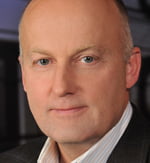
Stan E Hubbard
Reelz has also announced it will air World Without End, a medieval drama based on the book by Ken Follett and adapted by Germany’s Tandem Communications, Take 5 Productions, Galafilm and Scott Free Films.
Stan E Hubbard, CEO of Reelz, says original drama affords the network the ability to bring in premium advertising rates while also helping it to stand out from the crowd. “Particularly for the small to medium-sized networks, original drama can stand out and help people find the channel,” he says.
“For a relative newcomer, being able to have really strong international collaborations is critically important for us because we don’t have massive budgets or infrastructure. We have to do things with partners that have the same vision we have and a good producer in the middle to pull all the pieces together.”
As cable channels move into scripted series, they also face new competition in the form of VoD services. While the likes of Netflix and Hulu continue to buy off-network rights, their original production strategies mean they are effectively alternatives to the cablenets. Netflix titles coming to air include political thriller House of Cards, produced by Media Rights Capital, and Hemlock Grove, from Gaumont International Television.
Tahler says of Netflix: “They have a lot of funding and they obviously will not say outright that they’re looking to compete directly with cable networks, but when they put on original programming and it’s exclusive, they are a destination and when you’re a destination, often enough, you become a new cable platform.”
Meanwhile, Madden believes Netflix and other subscription-based VoD platforms are becoming valuable new revenue streams just as historic sources, such as DVD sales, are struggling.
Morayniss adds: “They’re not necessarily replacing but are supplementing those secondary rights deals that need to happen in the US after that first run for studios to justify the investment they’re making up front.
“Netflix is hungry for serialised drama, so economically, that has given a boost to the world of cable, where Mad Men may struggle in syndication but serialised it’s the perfect series.”
If VoD services are strengthening their position as challengers to original programming on cable networks, what then of the five broadcast networks that are fighting to maintain their audience shares?
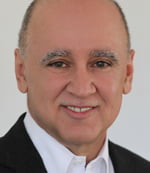
David Madden
During their Upfront presentations earlier this month, ABC, CBS, Fox, NBC and The CW unveiled their fall schedules, with each picking up a host of new dramas. They range from traditional procedurals such as Chicago Fire on NBC and soap-like Nashville on ABC, to shows that could sit on a cable network, like ABC’s Red Widow and Fox’s The Following.
Cegielski says cable dramas do not compete with those picked up by the networks, which he says tend to steer towards traditional procedurals such as NCIS and CSI. “Cable’s looking to do rich storytelling that may be more serialised, like The Killing,” he explains. “Their need is to be very unique, very loud and noisy. So as there are more networks clamouring for a piece of your audience, your shows have to be noisy, provocative and daring to satisfy the appetite of that consumer.”
Penney believes broadcast networks have now reaffirmed their commitment to drama, after years of reality TV, and are “more focused on high quality programming that is emblematic of premium TV. The only problem they face is they’re all ad-supported and that makes it very difficult to produce the quality and viewer satisfaction premium channels deliver while maintaining that friendliness to the advertiser, who can often have brand concerns,” he notes.
Le Goy adds that broadcast networks have “definitely upped their game creatively,” and the success of Grimm on NBC and Once Upon a Time on ABC has shown they are willing to invest in genre series more likely to be found on cable.
“Everything is more competitive because the wish to engage audiences and advertisers, to make sure you stay relevant and in people’s hearts and minds, is stronger than ever,” he says. “The weapon to do that is ground-breaking storytelling that will cut through the clutter.”
But while hunger for original material on cable is growing, demand for off-network rights has continued unabated. Reelz, for instance, still airs classic shows like Cheers and Spin City, while USA Network carries shows including Law & Order: SVU and House.
Scott Koondel, president of distribution at CBS Television Distribution and senior VP of corporate licensing and distribution at CBS Corp, says the studio has a “robust relationship” with many cable channels, with the CSI and NCIS franchises and the remake of Hawaii Five-O among the broadcast network’s shows that continue to pull in ratings and revenues off-network.
“We have some of the highest-rated drama series on US television, so they are in high demand from our clients,” he says. “The market for off-network sales is extremely strong as the cable channels need a constant infusion of content. USA’s schedule is nearly 80% acquired and those shows have the best success rates.”
For many channels struggling to find their voice in an increasingly competitive market, original series can help a network find an identity and an audience. And for producers operating in the cable drama space, an increasing number of channels brings greater opportunities to find homes for their series.
But as audience fragmentation continues, channels are under pressure to carve themselves a niche and commission series that shout louder than the rest of the field. And, as Madden says: “It’s only going to get more bloodthirsty.”


















.jpg)




























